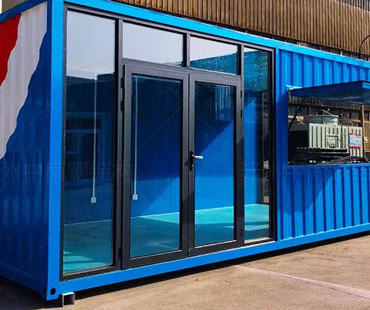In today's interconnected world, the movement of goods across borders is essential to economic growth and stability. At the heart of this intricate web of trade lies a seemingly simple yet revolutionary invention: the shipping container. Since its introduction in the mid-20th century, containers have transformed global logistics, making it possible to transport vast quantities of goods efficiently and cost-effectively. hengyu Trading Co., Ltd explores the importance and impact of containers on global trade, highlighting their role in facilitating commerce, driving economic development, and shaping international relations.
The concept of containerization began in the 1950s when American entrepreneur Malcolm McLean introduced standardized metal containers that could be easily loaded onto ships, trucks, and trains. This innovation drastically reduced loading times and labor costs, leading to a paradigm shift in shipping practices. Prior to containers, goods were loaded and unloaded individually, a process that was time-consuming and prone to damage. With the advent of containerization, the shipping industry saw a significant increase in efficiency and speed, paving the way for the globalization of trade.
One of the primary advantages of shipping containers is their ability to streamline the logistics process. Containers come in standard sizes, which allows for easy stacking and transportation across different modes of transport. This intermodal capability reduces handling times and minimizes the risk of damage. As a result, shipping costs have decreased significantly, making it economically viable for businesses to engage in international trade. The lower transportation costs have also contributed to the reduction of prices for consumers, allowing access to a wider range of products from around the world.

Shipping containers have become the backbone of global trade, enabling countries to exchange goods at unprecedented volumes. According to the World Trade Organization (WTO), international trade in goods has expanded dramatically over the past few decades, with container shipping accounting for a substantial portion of this growth. The introduction of larger vessels, capable of carrying thousands of containers at once, has further enhanced the capacity of the shipping industry, allowing for the movement of goods from one side of the globe to the other in a matter of days.
This unprecedented level of connectivity has enabled developing countries to participate in global markets, fostering economic growth and development. For instance, countries in Southeast Asia have leveraged container shipping to become key players in manufacturing and export, contributing to their economic rise and integration into the global economy.
Despite the many benefits of containerization, the shipping industry faces significant challenges. Environmental concerns have come to the forefront, as the carbon footprint of shipping is substantial. The International Maritime Organization (IMO) has set ambitious targets to reduce greenhouse gas emissions from shipping, and the industry is exploring alternative fuels and more efficient technologies to address these concerns.
Additionally, the COVID-19 pandemic exposed vulnerabilities in global supply chains, highlighting the need for greater resilience and adaptability in the shipping industry. Disruptions caused by lockdowns, port closures, and labor shortages have emphasized the importance of diversifying supply chains and investing in technology to enhance transparency and agility.
Looking ahead, the future of container shipping appears to be one of innovation and adaptation. Advancements in technology, such as automation, artificial intelligence, and blockchain, are poised to revolutionize logistics and improve efficiency further. Smart containers equipped with sensors can provide real-time data on the condition and location of goods, enhancing supply chain visibility and reducing losses.
Moreover, as sustainability becomes a priority for consumers and businesses alike, the shipping industry is likely to see a shift towards greener practices. Companies that prioritize environmentally friendly logistics solutions will not only comply with regulations but also cater to a growing market demand for sustainable products.
In conclusion, shipping containers are the lifeline of global trade, facilitating the movement of goods across borders and driving economic growth worldwide. Their impact on efficiency, cost-effectiveness, and the ability to connect markets cannot be overstated. However, the industry must navigate challenges related to environmental sustainability and resilience to disruptions. As we look to the future, the ongoing evolution of container shipping will play a critical role in shaping the dynamics of global trade, ensuring that it continues to thrive in a rapidly changing world.


